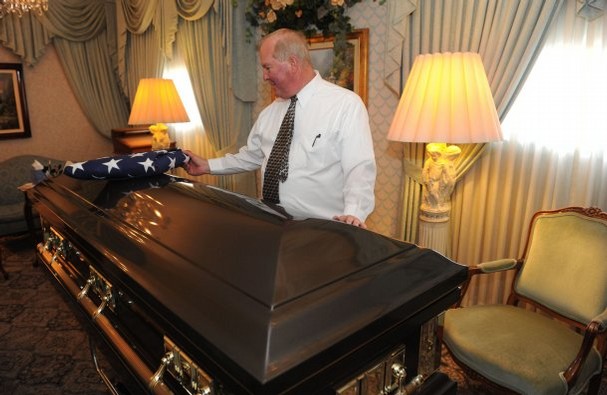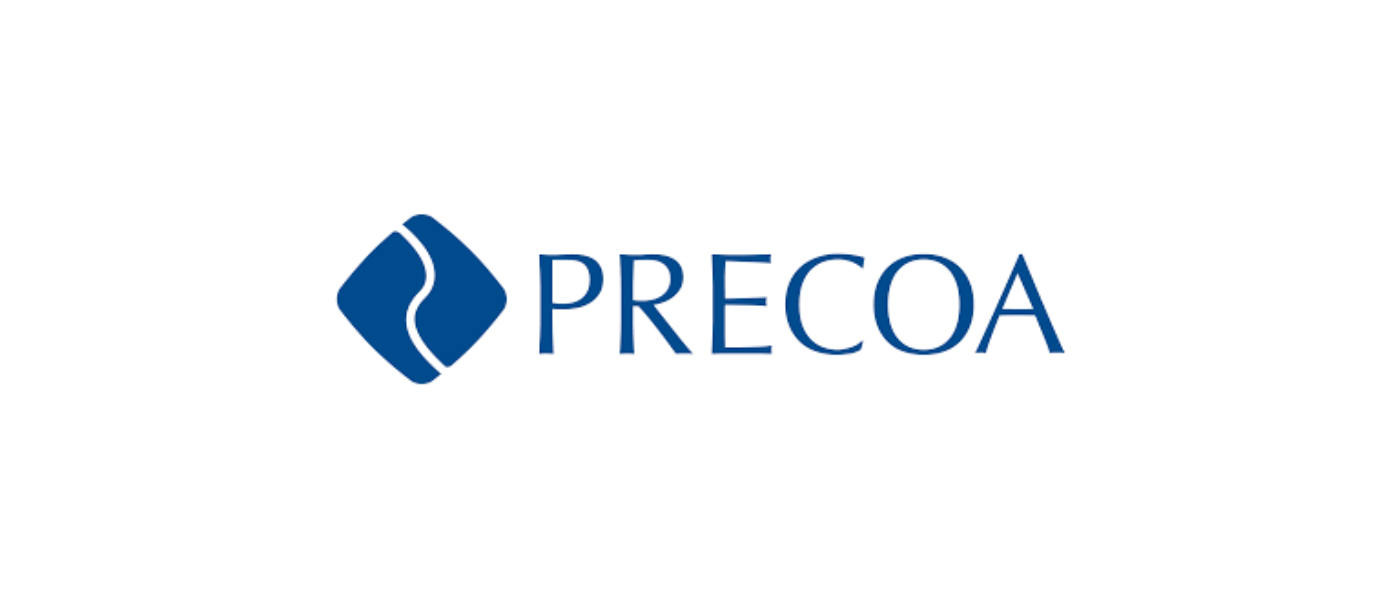FTC Staff Issues New Funeral Rule Advisory Letters
This article originally appeared in the January 24th edition of the Memorial Business Journal
Brookfield, WisCoNsiN – The FTC Staff recently posted on the FTC website four Funeral Rule Advisory Opinions.
Three of the opinions are new, while one, initially issued back in 2011 and which NFDA asked the Staff to reconsider, has
been reissued in a revised form.
The three new opinions do not break any new ground and reaffirm, for the most part, long-held interpretations of the
Funeral Rule previously issued by NFDA. A summary of the opinions is as follows:
Opinion No. 12-1. This opinion, which is the only Funeral Rule Advisory Opinion issued by the FTC Staff in 2012,
clarifies which caskets must be listed on a funeral home’s Casket Price List. Specifically, the question concerned whether
a funeral home that wished to test-market a casket to select consumers could leave the casket off of its Casket Price List.
The opinion quoted the FTC’s “Complying With the Funeral Rule” manual, which holds that those caskets usually
offered by the funeral home for sale that do not require special ordering must be listed on the Casket Price List. In this
case, since the test-market caskets were offered for sale and did not require special ordering, the opinion concluded that
they must be on the Casket Price List. Without this requirement, the opinion stressed that funeral homes could limit the
availability of less expensive caskets by offering them only to consumers with limited means.
What the opinion did not address and what may be of some concern to funeral homes are caskets sold under preneed
contracts. As the 1985 FTC Funeral Rule Compliance Guidelines recognized, if a funeral home has caskets in storage to
fulfill existing preneed contracts, those caskets are not required to be listed on the Casket Price List since they are not
currently offered for sale by the funeral home.
Opinion No. 13-1. In this opinion, the FTC Staff addressed the issues of whether funeral homes may charge extra for
handling obesity cases or using additional personnel for very large funeral services. In both cases, the opinion found that
these charges are permissible as long as they are listed on the General Price List and provide enough information so that
consumers can determine when the additional fees would be imposed.
NFDA has previously advised funeral homes that additional fees for handling obesity cases when doing removals, embalming or cremation are permissible under the Funeral Rule. We agree with the FTC Staff’s opinion that the additional charges must be listed on the General Price List and must identify at what point they will be imposed. For example, with obesity cases, the funeral home should identify the precise weight limit at which the additional charges will be imposed. With additional personnel charges for large funerals, the General Price List should spell out under what circumstances the extra fees would be imposed.
Opinion No. 13-02. This opinion also concerned the issue of additional fees that some funeral homes charge for special services. In this case, the issue was whether funeral homes may charge additional fees to process assigned insurance
policies or charge consumers any fees that the funeral home pays to third parties to process insurance claims. In both cases,
the FTC opinion concluded that as long as the consumers are given payment options and the options (together with any
applicable fees) are explained on the General Price List, the fees are permissible under the Funeral Rule.
If funeral homes are providing payment options to consumers and imposing additional fees for different options, those
fees should be disclosed on the General Price List. This would include the new option of imposing a surcharge on a consumer who pays with a credit card, which will be permissible in 40 states starting January 27, 2013.
Opinion No. 11-1. This opinion, which was originally issued December 21, 2011, addressed the issue of charging a
separate fee for identification prior to cremation when state law does not require identification. The FTC Staff advised in
the original opinion that a funeral home could not require the purchase of identification prior to final disposition unless
a state law or a crematory requirement mandated the identification.
When the opinion was initially made available to NFDA, NFDA immediately requested the FTC Staff to reconsider
the opinion. First, we pointed out that the opinion is wrong in concluding that identification is not a practical necessity.
As we explained, every credible expert in the industry advises that a funeral home that fails to require identification of the
remains prior to cremation is negligent and will be held liable if the failure to identify results in a wrongful cremation.
The original opinion claimed that even if identification is a practical necessity to protect a funeral home from liability,
there are three less expensive alternatives to an identification requirement that protect the funeral home from liability.
The three alternatives suggested by the Staff Advisory Opinion consist of identification of a body by the family using a
digital photograph taken by the funeral home, identification by the funeral director using a family photo provided by the
family or the execution of a waiver by the family.
NFDA pointed out to the FTC Staff that identification by a digital photograph is an acceptable alternative to in-person
identification but also involves costs that a funeral home is entitled to collect. We further pointed out that having a funeral
director make the identification using a family photograph is not a suitable alternative since many families may not have
a photograph or the photograph may be so out of date that it is of little use. In addition, having the funeral director identify the body from a family photograph does not relieve the funeral home from liability if the identification is incorrect.
NFDA also demonstrated that a waiver offers absolutely no protection since the family that signs the waiver will not be
the family that sues the funeral home in the case of wrongful cremation.
While the reissued opinion No. 11-1 acknowledged NFDA’s arguments, it did not address or refute them. However, the
revised opinion does contain a new footnote that, as explained below, allows all funeral homes to include identification as
part of their direct cremation or immediate burial charges. Therefore, although the revised opinion employs faulty logic
to arrive at an acceptable accommodation, it does recognize that funeral homes may require identification of the body as
part of direct cremation and immediate burial.
In most respects, the revised opinion suffers from the same flaws as in the original opinion. In that regard, consider the
following:
• While the revised opinion cited the fact that NFDA agrees that a digital photograph of the decedent may be used as
an alternative to in-person identification, it ignores NFDA’s further argument that funeral homes should be entitled to
charge for arranging and carrying out an identification by photograph. Simply because identification by photograph may
entail slightly less work than in-person identification does not mean that a funeral home cannot charge for identification
by photograph. Regardless of whether the alternatives to in-person identification are less expensive, they are still services
for which a funeral home is entitled to charge.
• The FTC Staff repeats its claim that using family photographs may be sufficient to allow a funeral director to make an
identification while ignoring the NFDA argument that many families do not have recent photographs and that having the
funeral director make the identification by the photograph carries a large risk of liability. Moreover, regardless of whether
the funeral director uses a photograph to do the identification or takes a digital photograph of the body, the funeral home is still entitled to charge for this service.
• Despite NFDA explaining to the FTC Staff that a waiver provides absolutely no protection in a wrongful cremation
case, the FTC repeated its argument that a waiver may provide sufficient protection when a body is removed and a family
member is present to sign the waiver. This argument ignores the fact that many times, family members are not present at a
removal and that identification should be conducted and documented only after the funeral home has custody of the body
in a setting under its control. In addition, as we previously pointed out, a waiver offers no protection because the family
that signs the waiver will not be the family that is suing the funeral home for wrongful cremation.
• The FTC opinion argues that although funeral homes in states that do not require identification may not have a
separate identification fee, they are free to include identification as part of the non-declinable basic services fee. This, of
course, ignores the fact that identification is only used in the case of direct dispositions and is never imposed if a family
has selected a visitation. Therefore, if identification is incorporated into the basic services fee, a family that purchases visitation will have to pay for identification even though they are not using it. That double charge would be a clear violation
of the Funeral Rule.
Even more perplexing than the FTC Staff urging funeral homes to violate the Funeral Rule by double charging families that purchase visitation is the fact that the FTC Staff now argues that even though identification is not a practical necessity, funeral homes may incorporate identification as part of their basic services fee. If identification is not a practical necessity that funeral homes can compel cremation customers to buy, how can a funeral home compel all of its customers to buy identification by simply lumping it in the basic services fee? The position is completely illogical.
As noted above, the revised opinion now includes a new footnote #12 that states that funeral homes may include identification in the basic services fee. Therefore, by requiring identification as part of its basic services fee, a funeral home may include identification in its direct cremation and immediate burial charges. Based on the content of revised opinion Letter No. 11-01, NFDA would advise funeral homes as follows:
• If your funeral home is located in a state that requires identification prior to cremation, you may charge a separate
identification fee that would apply prior to any cremation. You may also include identification as a service in your direct
cremation and immediate burial listings.
• If your funeral home is in a state that does not require identification, but the crematory you utilize requires identification prior to cremation, you may charge a separate fee for identification prior to cremation. You may also include identification in the direct cremation and immediate burial listings on the General Price List.
• If your funeral home is located in a state that does not require identification prior to cremation and the crematory
your funeral home utilizes does not require identification prior to cremation, then your General Price List should not
contain a separate charge for identification prior to cremation. However, your funeral home may include identification in
the direct cremation and immediate burial listings. The identification would be part of the basic services fee that is incorporated into the direct cremation and immediate burial services.




